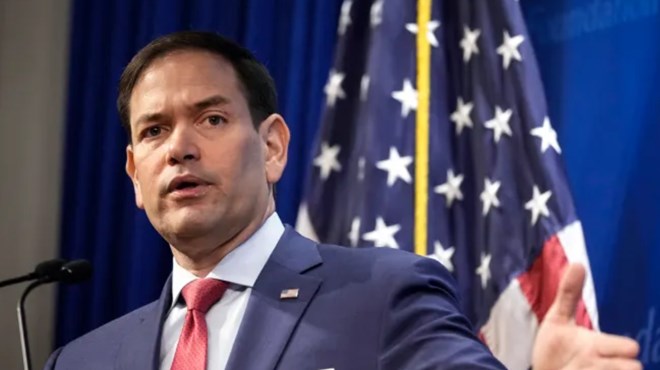
Thursday May 29, 2025

FILE – U.S. Secretary of State Marco Rubio speaks during a press briefing in Washington, D.C., defending sweeping cuts to foreign aid programs.
Mogadishu (HOL) — U.S. Secretary of State Marco Rubio is facing growing criticism from health experts and aid organizations after defending sweeping cuts to foreign assistance and denying claims that the reductions have led to deaths around the world.
At a May 21 congressional hearing, Rubio said, “No one has died because of USAID—” before being interrupted by Rep. Brad Sherman. Moments later, Rubio responded, “That’s a lie,” as Sherman’s staff held up photos of individuals said to have died after aid was cut. His remarks came in response to questions about the Trump administration’s decision to dismantle the U.S. Agency for International Development (USAID) and freeze more than 90% of foreign aid programs earlier this year.
But humanitarian groups and global health researchers strongly dispute his claims. According to modelling by Boston University’s infectious disease team, an estimated 96,000 adults and 200,000 children have died since January due to disruptions in services previously funded by U.S. assistance. The model suggests the global death toll continues to grow by more than 100 people every hour, citing lost access to treatment for HIV, tuberculosis, malaria, and malnutrition.
In Nigeria, 7-year-old Babagana Bukar Mohammed died in February after being turned away from a USAID-funded clinic that had received a stop-work order days earlier. His mother, Mariam Mohammed, said she had no money to seek alternative treatment. The clinic reopened in April, but it was too late to save Babagana.
Similar accounts have emerged from other countries. In South Sudan, 5-year-old Evan Anzoo and his HIV-positive mother died after their access to antiretroviral treatment under PEPFAR, a major U.S. global health initiative, was cut. In Myanmar, 71-year-old refugee Pe Kha Lau reportedly died after being discharged from a U.S.-funded hospital that had been ordered to shut down.
Despite these cases, Rubio maintains that the aid restructuring is part of a broader strategy to align foreign assistance with American national interests. “Foreign aid is not charity,” Rubio said during the same hearing. “It exists to advance the national interest of the United States.”
Rubio has called for a comprehensive review of all State Department spending and said future aid must demonstrate clear strategic benefits to the U.S., including in regions like the Horn of Africa. Countries such as Somalia, long reliant on U.S. aid, could now face further uncertainty under the revised approach.
The abrupt manner of the cuts has drawn widespread condemnation. Health systems across Africa and Southeast Asia—many of them funded through USAID—were disrupted without warning or contingency plans. An internal USAID memo, authored by acting global health administrator Nicholas Enrich before he was placed on administrative leave, warned the freeze could result in 12.5 million new malaria cases, up to 166,000 additional deaths annually, and 200,000 new polio cases.
Mariam Mohammed, who now worries about her surviving son Umar—also living with sickle cell disease—says the reopened clinic is her only hope. “My only wish is that these clinics stay open,” she said.
In 2024, the United States provided nearly 40% of global humanitarian aid coordinated by the United Nations. As the world’s largest donor shifts its focus away from humanitarian needs and toward political strategy, aid organizations warn that the human cost could continue to rise.






